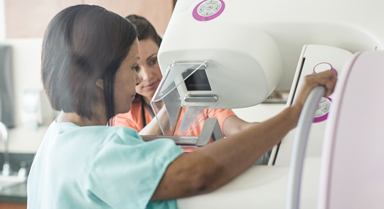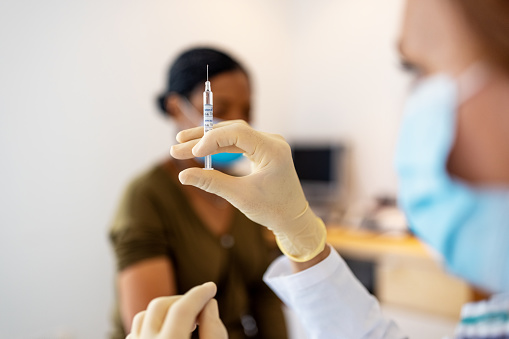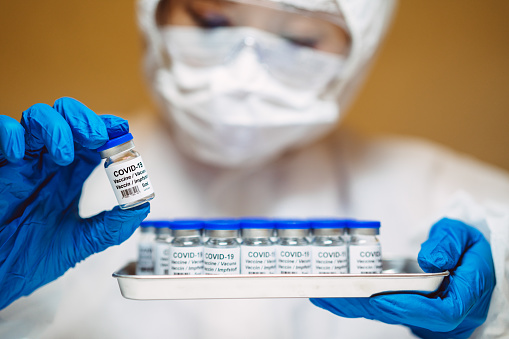Did you know?
- Colorectal cancer is the second most commonly occurring cancer in women and the third most commonly occurring cancer in men.2
- The lifetime risk of developing colorectal cancer is: about 1 in 23 (4.3%) for men and 1 in 25 (4.0%) for women.3
- The five-year survival rate for colorectal cancer diagnosed at an early stage is 91%, compared with 15% for a late-stage diagnosis.4
What is colorectal cancer?
Colorectal cancer happens when cells that aren't normal grow in your colon. These cells often form in small growths called polyps. Not all colon polyps turn into cancer. But most colorectal cancer starts in a polyp. This cancer is also called colon cancer or rectal cancer, depending where the cancer is located.5
What are the symptoms?
Colorectal cancer usually doesn't cause symptoms until after it has started to spread. The most common symptoms include blood in your stools and very dark stools. You may have more frequent bowel movements. Or you may feel like your bowels aren't emptying completely. Other symptoms may include belly or rectal pain.5
How is it diagnosed?
If your doctor thinks you may have colorectal cancer, you'll be asked about your medical history and have a physical exam. Your doctor may use a lighted scope to view the inside of your colon (colonoscopy) and take a biopsy. You may also have blood tests and a CT scan.5
What are the risk factors?
Having one or more of these risk factors can make it more likely that you will get colorectal cancer. But it doesn't mean that you will definitely get it. And many people who get colorectal cancer don't have any of these risk factors.5
Risk factors include:
- Your age. Getting older is a risk factor for colorectal cancer.
- Your family's medical history. You are more likely to get colorectal cancer if one of your parents, brothers, sisters, or children has had a certain type of polyp or colorectal cancer.
- Your lifestyle. Certain lifestyle behaviors may increase your risk of colorectal cancer. These include:
- Not getting enough physical activity.
- Drinking too much alcohol. This means more than 2 drinks a day if you're a man and more than 1 drink a day if you're a woman.
- Eating foods high in red and processed meats. And having a diet low in fruits, vegetables, and whole grains.
Why is regular screening important?
With colorectal cancer, symptoms often don't show up until the cancer is advanced. So regular screening makes it more likely that cancer will be found early, when the cancer may be easier to treat. And colorectal cancer can be prevented if your doctor finds and removes polyps during a colonoscopy.
How is colorectal cancer treated?
Treatment for colorectal cancer is based on the stage and location of the cancer. It's also based on other things, such as your overall health. Most people have surgery to remove the cancer. Chemotherapy, radiation therapy, or both may also be used. In some cases, targeted therapy or immunotherapy may be an option.
If you have questions about any type of cancer contact your health care provider for advice and support.
1. Colorectal Cancer Alliance, March is National Colorectal Cancer Awareness Month, https://www.ccalliance.org/about/awareness-month. Accessed December 23, 2022.
2. World Health Organization, Cancer Today, https://gco.iarc.fr/today/explore. Accessed January 10, 2023.
3. American Cancer Society, Key Statistics for Colorectal Cancer, https://www.cancer.org/cancer/colon-rectal-cancer/about/key-statistics.html. Last Revised: October 31, 2022.
4. Cancer.net, Colorectal Cancer: Statistics, https://www.cancer.net/cancer-types/colorectal-cancer/statistics. Reviewed May 2022.
5. Cigna, Colorectal Cancer, https://www.cigna.com/knowledge-center/hw/medical-topics/colorectal-cancer-hw198266. Current as of September 8, 2021.
This is general health information and not medical advice or services. Always consult with your health care provider for appropriate examinations, treatment, testing and health care recommendations.
This article serves only as a reference and is intended for informational purposes only. Nothing in this article constitutes legal, tax, financial planning, health or medical advice including diagnosis or treatment. Always seek the advice of your physician or other qualified health provider with any questions you may have regarding a medical condition. References to third-party organizations or companies, and/or their products, processes or services, do not constitute an endorsement or warranty thereof. Products and services may not be available in all jurisdictions and are expressly excluded where prohibited by applicable law. All group insurance policies and health benefit plans contain exclusions and limitations. For costs and details of coverage, contact a Cigna Healthcare representative.
Cigna Healthcare products and services are provided exclusively by or through operating subsidiaries of The Cigna Group, including Cigna Health and Life Insurance Company, Life Insurance Company of North America, Cigna Global Insurance Company Limited, Evernorth Care Solutions, Inc., Evernorth Behavioral Health, Inc., or through their affiliates and contracted companies.









































































































